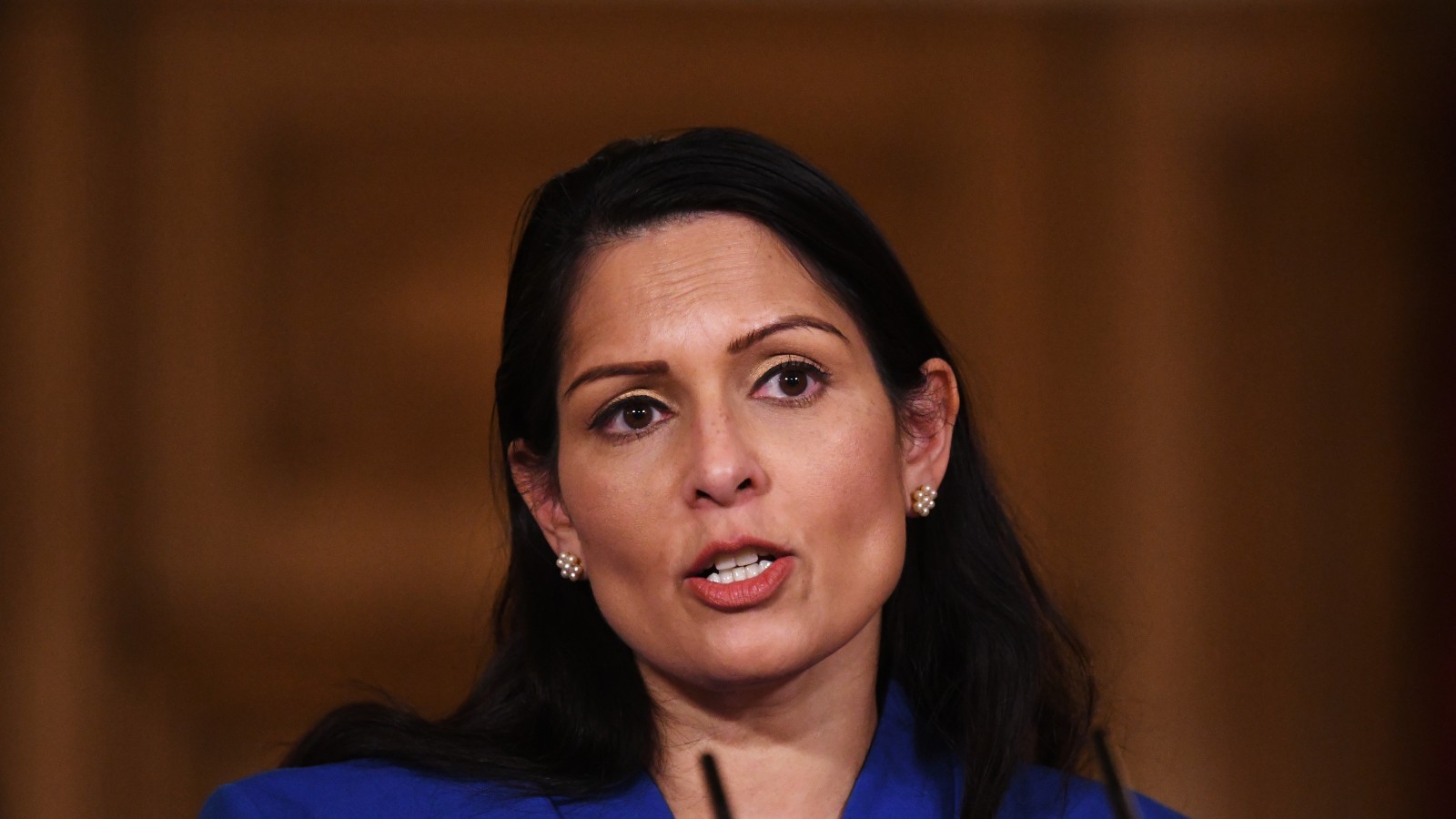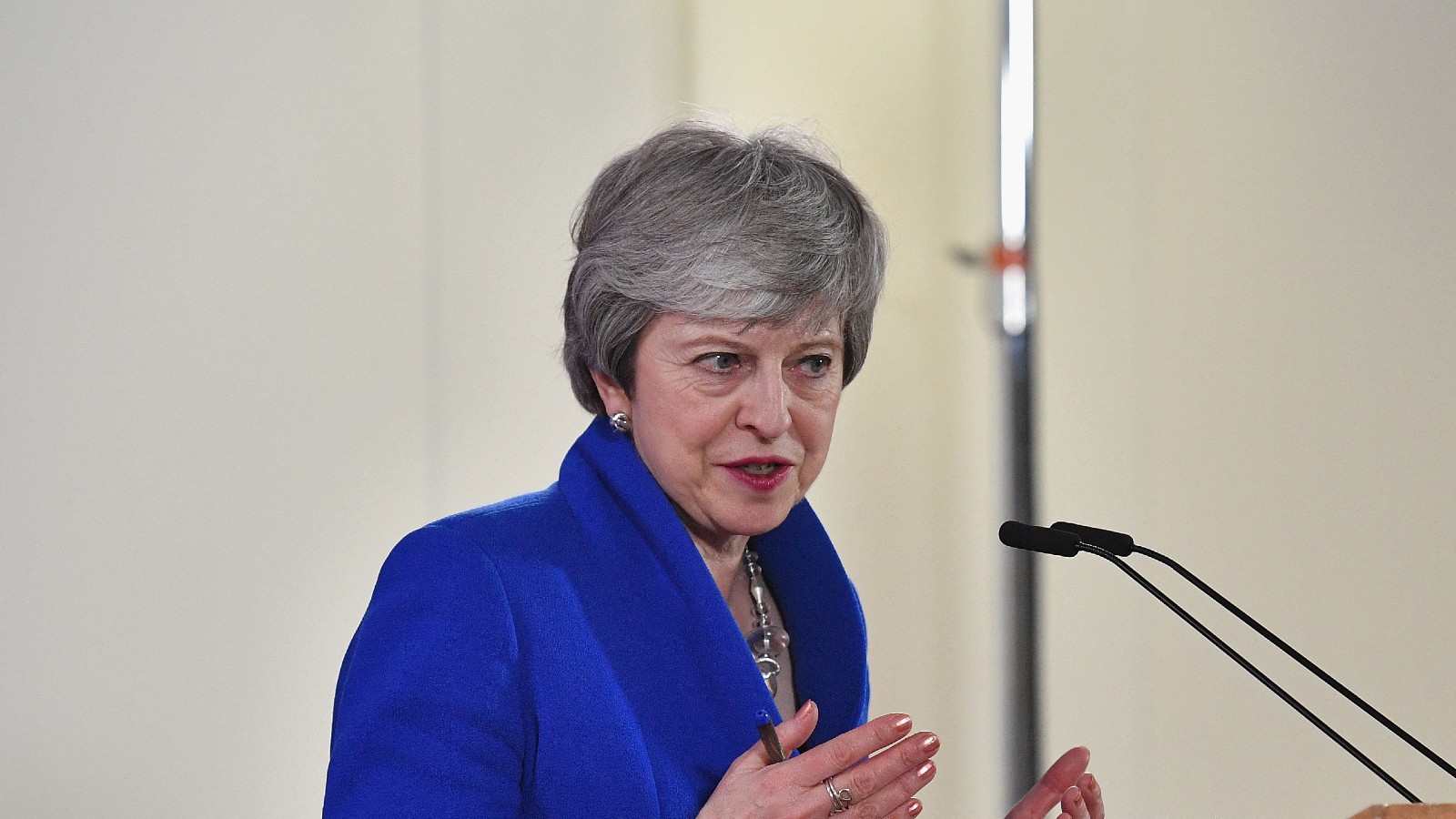A new protest bill has passed in the UK – here's what it means for freedom of speech
The controversial new bill could drastically change all future protests in England and Wales


A controversial new bill that would increase police power has been passed in the UK, despite objections that it will jeopardize freedom of speech.
The Police, Crime, Sentencing and Courts Bill, which was voted through parliament yesterday, introduces several changes to the rules affecting public protests, including the allocation of stronger authority to law enforcement. The legislation was spearheaded by Home Secretary Priti Patel, who has repeatedly argued that it will help protect vulnerable people in society.
The bill has been widely criticized in light of the recent vigil for Sarah Everard, which saw tens of Metropolitan Police officers storm a peaceful demonstration at Clapham Common in London last Saturday.
The Police Bill will better protect women & children from sexual abuse:✔️ Ends halfway release of those convicted of offences like rape✔️ Extends scope on abusing positions of trust to protect children✔️ Better protection & reassurance for alleged victims of domestic abuse pic.twitter.com/QYqNKZ6t8pMarch 15, 2021
What exactly is the Police, Crimes, Sentencing and Courts Bill?
The bill is a hefty piece of legislation that will introduce multiple changes to the law and order of England and Wales.
At 296 pages long, it covers a wide range of criminal issues. It will increase sentences for violent offenders and killers of children, toughen penalties for those who attack police officers and amend sexual offence legislation to hold those in authority more accountable.
However, its most controversial feature is its changes to protest laws.
Police will now have far more control over protest conditions, including their start and finish time, as well as their noise levels. They will be able to prosecute activists if they cause 'serious annoyance', a vague and subjective offence that has yet to be properly defined. Police would even be allowed to apply these strident measures to an individual demonstration, such as a single person holding a placard. If they fail to follow police orders, they could be fined up to £2,500.
Sign up to our free daily email for the latest royal and entertainment news, interesting opinion, expert advice on styling and beauty trends, and no-nonsense guides to the health and wellness questions you want answered.
The defacement of statues will also now carry a lofty penalty, with those accused facing up to 10 years behind bars.
More from woman&home:
• Best air purifiers to cleanse your home
• Get all zen with our pick of the best yoga mats
• Try these best pillows for your dreamiest night's sleep yet
Why are people concerned about the bill?
The bill has been met with backlash from members of the public, with many taking to the streets to protest the new measures. Over one thousand people gathered in Parliament Square in London on Monday to voice their objection to the proposals and to condemn the Metropolitan Police's behavior at Sarah Everard's vigil last weekend. Protesters chanted 'Kill the Bill!' and waved placards denouncing the police's conduct. A minute's silence was also held for Sarah, whose tragic death has highlighted the failure of law enforcement to protect women in the UK.
The Metropolitan Police commissioner, Cressida Dick, has stood by her police force's actions at the vigil, arguing that the public does not understand the pressure on her staff. "They have to make these really difficult calls and I don’t think anybody should be sitting back in an armchair and saying, ‘Well, that was done badly’ or ‘I would’ve done it differently’ without actually understanding what was going through their minds," she said.
Chants of “kill the bill” at Parliament Square. pic.twitter.com/ZRhUylXVyOMarch 14, 2021
The bill was also met with opposition in parliament prior to its passing.
The Labour Party voted against it, on the grounds that it could not agree with its amendments to protesters' rights. David Lammy, the party's shadow justice leader, called the legislation a 'mess' and said that this is 'no time to be rushing through poorly thought-out measures to impose disproportionate controls on free expression.'
Keir Stamer, the leader of the Labour Party, also took issue with the lack of emphasis on protecting women and children in the bill.
"It says lots of things about statues and almost nothing about protecting women and girls, and particularly dealing with violence against women and girls," he said. "This is a crime, police, sentencing and court bill, it should be the vehicle for addressing it. And there is nothing meaningful in it."
Theresa May, former Prime Minister, was another vocal opponent of the bill's contents. She suggested that it would undermine the democratic state of the nation by granting the government too much power.
“I know there will be people who will have seen scenes of protest and will have said, 'why isn't the Government doing something?', to which the answer in many cases may simply be because we live in a democratic, free society," she argued.

Theresa May has voiced concerns over the bill.
Why are people defending the bill?
Supporters of the bill have argued that it will allow police to take a more proactive approach in combatting criminal behavior and public disorder. Priti Patel has insisted that the current legislation for overseeing protests, which was enacted over 30 years ago, is outdated and insufficient in today’s society.
“In recent years we've seen significant change in protest tactics, with protesters exploiting gaps in the law which have led to disproportionate amounts of disruption," she said.
Patel also assured the public that police will be tackling 'dangerous and disruptive protests', adding that the 'majority of protesters will be able to continue to act, make noise as they do so now, without police intervention.'
The right to protest is currently protected in the Human Rights Act, which states that 'Everyone has the right to freedom of peaceful assembly and to freedom of association with others.' However, the government is allowed to place restrictions on this freedom if they are 'prescribed by law' and if they are in the interest of national security or public safety. They are also at liberty to impose restrictions on protests if they serve to prevent crime or to protect the freedoms of others.

Hailing from the lovely city of Dublin, Emma mainly covers the Royal Family and the entertainment world, as well as the occasional health and wellness feature. Always up for a good conversation, she has a passion for interviewing everyone from A-list celebrities to the local GP - or just about anyone who will chat to her, really.
Emma holds an MA in International Journalism from City, University of London, and a BA in English Literature from Trinity College Dublin.